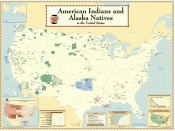During the 17th and increasingly in the 18th century, British colonists charged Great Britain with violating the ideals of rule of law, self government, and the equality of rights. Though this may be true to some extent, the colonists themselves violated those very ideals in their treatment of others. When one considers the harsh treatment of blacks, Native Americans, and even the poorer classes of white settlers in colonial America, the protesting colonists seem to be quite hypocritical.
If the British monarchy was tyrannical in the views of the colonists, the treatment of blacks must be beyond oppressive. First of all, blacks did not come to America under their own free will. Many were kidnapped from Africa and sold into the American slave market. As slaves, blacks had no rights at all; they were merely regarded as properties of their masters. In fact, slave codes made slaves and their children property for life of their masters.
Deprived of live, liberty, and definitely the pursuit of happiness, blacks suffered much more under the colonists than the colonists had under British rule.
Native Americans, like the blacks, were injustly abused by the British colonists. Not only did the colonists invade the land that was rightfully the Natives', but they went as far as to killing and destroying if there was resistance. In the notorious Pequot War, English settlers virtually annihilated the Pequot tribe by setting fires to their wigwams and shooting every Native they see.
Such contemptible behavior of the colonists certainly made it ironic for these same colonists to protest against British rule.
Even the poorer classes of white settlers suffered injustice under their own people in colonial America. Due to their lack of economic status, these poor settlers were forced to be in lower society. For example, when attending...



Wow
Very well written, and highly informative. Great job!
4 out of 4 people found this comment useful.